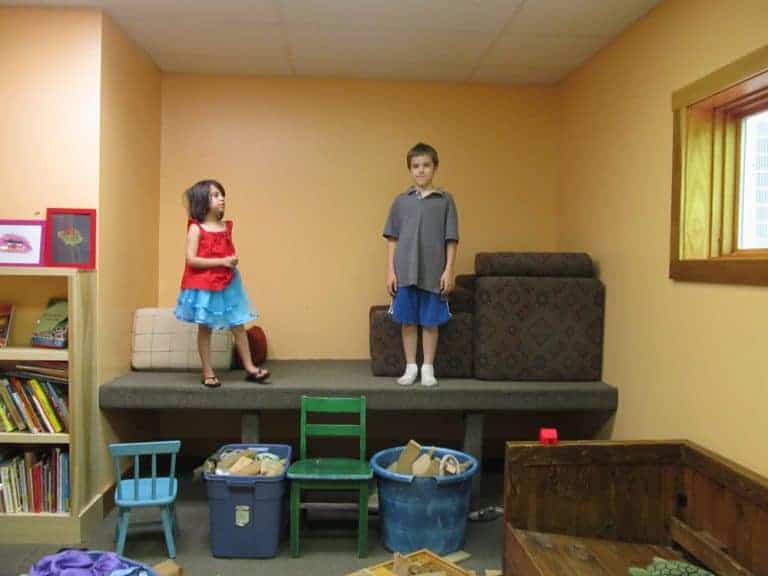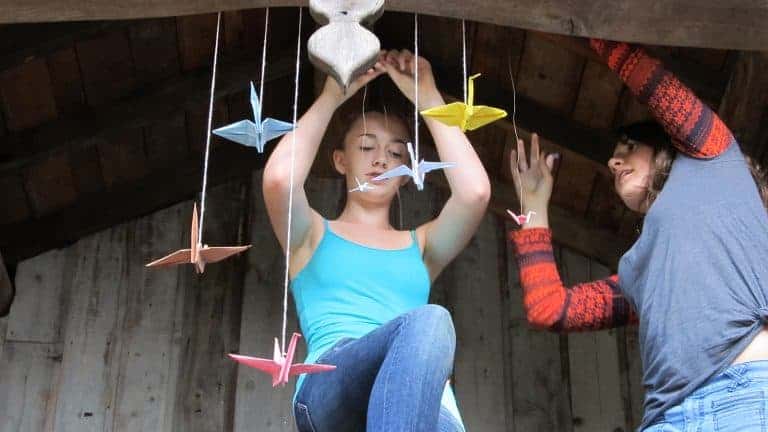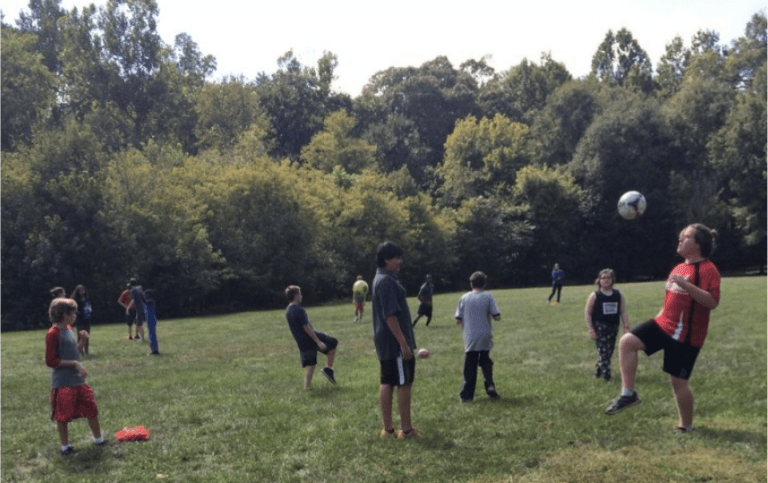No Bullies Here: A School Culture of Respect
Three adolescent boys enter the back door and head into the Shop. They are talking a mile a minute, and they are on a mission to build or repair something, maybe a shield for their swordplay game. Their presence is loud, physical, and energetic. Here at Fairhaven School, the moment is insignificant; however, in the landscape of American schooling, the moment embodies much, and warrants unpacking.
A first element to appreciate is the boys’ liberty. No one has directed their activity, nor will it be measured, evaluated, or assessed by anyone but themselves. Instead, like many grownups in our post-industrial society, they are following a thread, an interest in combat reenactment that is rooted both in play and in history. Although their passage into the shop on this day is ephemeral, it also exists on a continuum, as their play and relationships span years. The late educator and process philosopher Don Oliver wrote about “concrescence,” naming the constant coming together of disparate parts to create a life form, in this case a person. Here at Fairhaven School, individual freedom enables concrescence.
Another aspect to consider is the larger, egalitarian cultural matrix of the school. We are a transparent, respectful democracy where we value all pursuits and activities. Again, the young men are going to the shop to work on their reenactment weapons, yet they are not derided for being nerdy or dorky at school, and they are not relegated to some isolated social rung. In short, nobody is shoving them up against the proverbial locker. Likewise, the best athletes and elected school leaders here garner no special adulation, nor do the stars of the school play. I recently read a lengthy article in New York magazine that deconstructs the experiences of adolescents in mainstream American high schools. Here is a typical passage:
Maybe, perversely, we should be grateful that high school prepares us for this life. The isolation, the shame, the aggression from those years—all of it readies us to cope. But one also has to wonder whether high school is to blame; whether the worst of adult America looks like high school because it’s populated by people who went to high school in America. We’re recapitulating the ugly folkways of this institution, and reacting with the same reflexes, because that’s where we were trapped, and shaped, and misshaped, during some of our most vulnerable years.
Or consider this insightful sentence:
Though adolescents may want nothing more than to be able to define themselves, they discover that high school is one of the hardest places to do it.
-from “Why You Truly Never Leave High School” by Jennifer Senior
Although the article looks honestly at the grinding, stratifying social phenomena of high school, it never questions the underlying assumption that some form of coercive, hierarchical schooling is necessary and ultimately beneficial. At Fairhaven School, we do!
Here, adolescents spend remarkable amounts of time and energy defining themselves. It is arguably their primary project. We see students try new outfits, new activities, new friendships, and new ideas every day. Is this not what adolescence demands? We also enroll refugees from the state schools every year, and watch them rediscover themselves.
Back to the boys entering the shop: a final element that bears commentary is the responsibility their simple act of entry bespeaks. No hall passes, no policeman watching over them, no tsking teachers or peers. This is what their moment will entail, and the shield they repair is all theirs. Nobody will bully them here or online about their pursuits, and nobody will require them to explain how this will guarantee their future success.
Finally, the absence of coercion and evaluation enables the blood flow of Fairhaven School. People here pursue their interests in a democratic, respectful environment where we talk honestly and openly about, well, everything. Boys make swords and talk loudly about it, and nobody even takes notice. Is it perfect? Not yet. But do we create another way to grow up, free from many of the crushing antagonisms of high school? Yes. In an educational world where school bullying and its investigation predominate, does Fairhaven School offer an alternate reality? Yes, we do.
Mark McCaig
March, 2013


